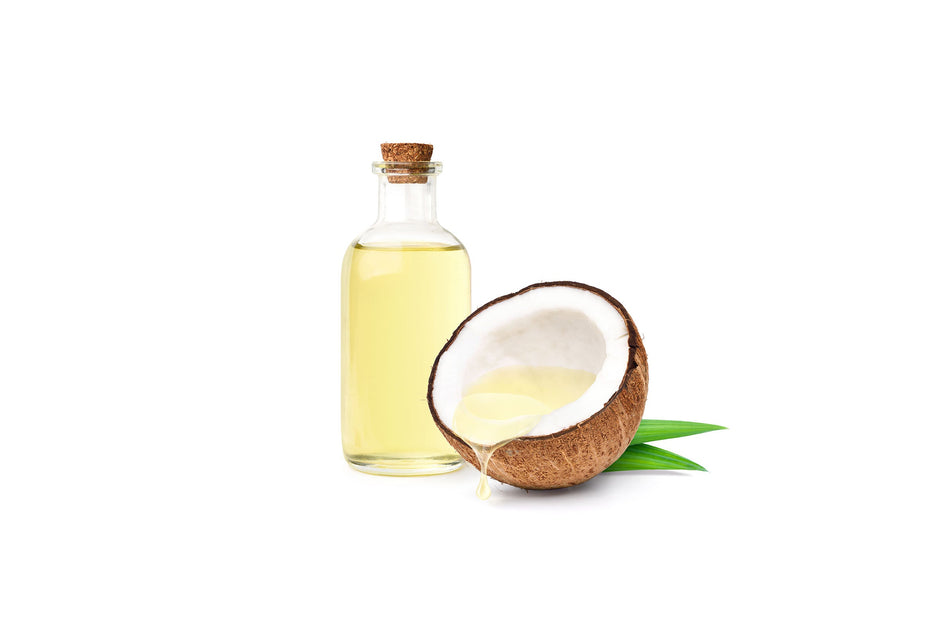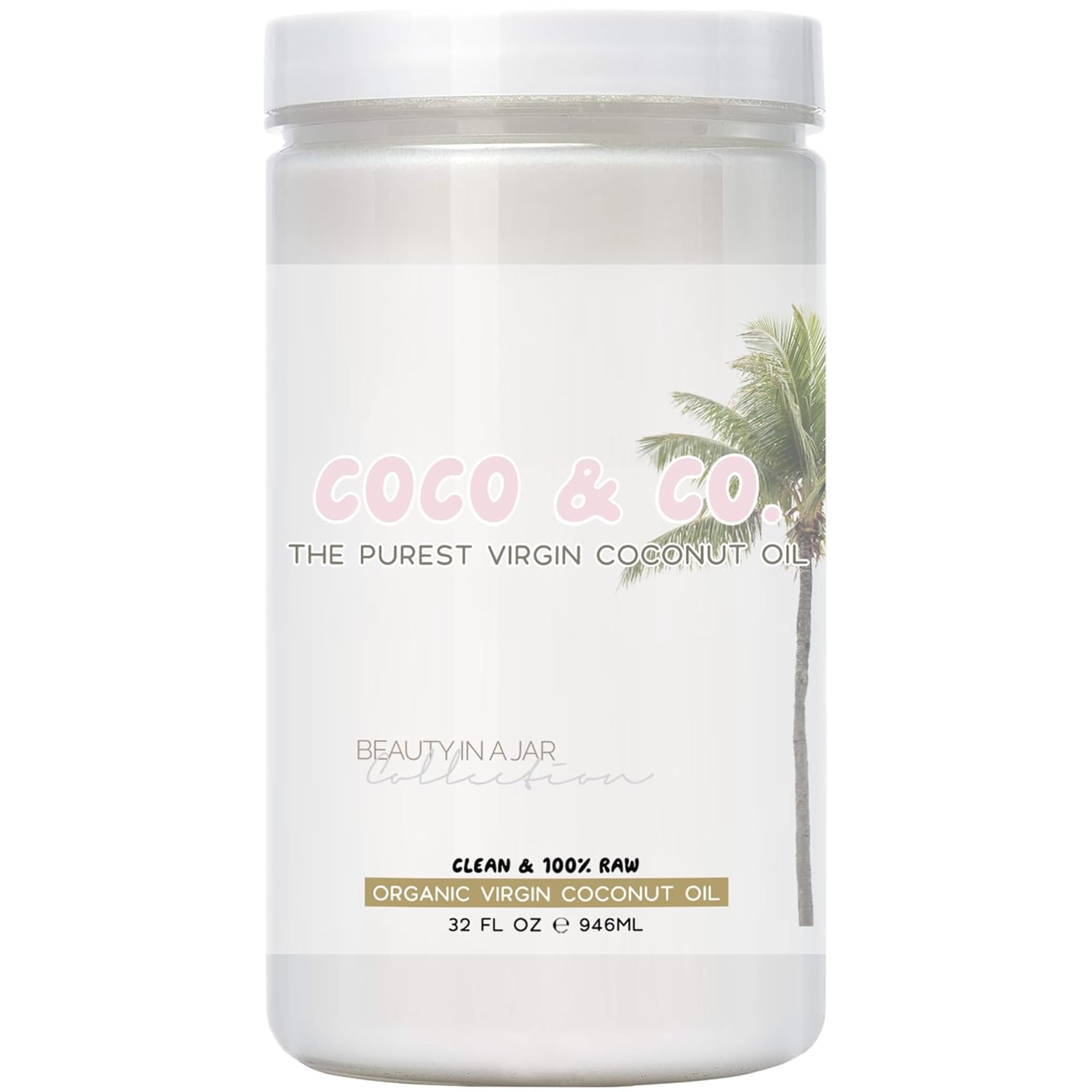The Best for Face in 2025: Top 8 Products Reviewed by Dermatologists
Coconut oil has gained tremendous popularity as a natural skincare solution in recent years. From makeup removal to moisturizing, this tropical oil is touted by many as a miracle product. But what do dermatologists actually think about using coconut oil on your face? We've consulted with leading skin experts to provide evidence-based insights on whether this natural remedy deserves a place in your skincare routine.
What Dermatologists Say About Coconut Oil
According to board-certified dermatologist Dr. Rachel Green, "Coconut oil has certain properties that can benefit some skin types, but it's definitely not a one-size-fits-all solution." This sentiment is echoed by many skin professionals who emphasize the importance of understanding your specific skin needs before incorporating coconut oil into your facial care routine.
Expert Opinion: The Benefits
Dr. Marisa Garshick, a renowned dermatologist in New York, explains: "Coconut oil contains medium-chain fatty acids, particularly lauric acid, which has both moisturizing and antimicrobial properties. For patients with extremely dry, flaky skin or conditions like eczema, it can provide significant relief when used appropriately."
Several dermatologists highlight these potential benefits:
- Superior Moisturizing Effects: "The molecular structure of coconut oil allows it to penetrate the skin more effectively than many commercial moisturizers," says Dr. Joshua Zeichner, Director of Cosmetic and Clinical Research in Dermatology. "It helps seal moisture within the skin while simultaneously filling gaps between skin cells for a smoother appearance."
- Antimicrobial Protection: Dr. Whitney Bowe, research scientist and board-certified dermatologist, notes that "lauric acid, which comprises about 50% of coconut oil, has well-documented antimicrobial properties that may help manage certain skin conditions associated with bacterial imbalance."
- Anti-inflammatory Properties: "Some patients with inflammatory skin conditions experience relief after applying coconut oil," explains Dr. Lindsey Zubritsky, board-certified dermatologist. "The natural anti-inflammatory effects can help calm irritated skin, though it's not powerful enough to replace medicated treatments for serious conditions."
- Gentle Makeup Removal: Dr. Shereene Idriss recommends coconut oil as a makeup remover for patients with dry skin: "It effectively dissolves even waterproof mascara and heavy foundation without the harsh scrubbing required with some commercial removers, which can damage the skin barrier."
Expert Warning: The Drawbacks
Despite these benefits, dermatologists are quick to point out significant concerns about facial use of coconut oil:
- Highly Comedogenic: "On a scale of 0-5 for comedogenicity, coconut oil ranks as a 4, which means it has a high potential to clog pores," warns Dr. Hadley King, clinical instructor of dermatology. "This makes it problematic for anyone with acne-prone skin or even those who occasionally experience breakouts."
- Not Suitable for Oily Skin Types: Dr. Nava Greenfield of Schweiger Dermatology Group is adamant: "I almost never recommend coconut oil for patients with oily or combination skin. It simply adds unnecessary oil to an already oily complexion, potentially exacerbating skin concerns rather than helping them."
- Potential Allergic Reactions: "While relatively uncommon, allergic contact dermatitis from coconut oil does occur," cautions Dr. Diane Berson, Associate Professor of Dermatology. "I always advise patients to perform a patch test before applying it to their entire face."
- Limited Active Ingredients: Dr. Corey L. Hartman, founder of Skin Wellness Dermatology, points out: "When comparing coconut oil to formulated skincare products, it's important to recognize that it lacks the targeted active ingredients found in products specifically designed for facial concerns like aging, hyperpigmentation, or acne."
Which Skin Types Should Consider Coconut Oil?
Based on dermatologists' recommendations, coconut oil may be beneficial for:
- Very Dry Skin: "Patients with severely dry skin, particularly in winter months, often benefit from coconut oil's intensive moisturizing properties," says Dr. Ellen Marmur, Associate Clinical Professor of Dermatology.
- Mature Skin: Dr. Patricia Wexler notes that "older skin, which naturally produces less sebum, can benefit from coconut oil's emollient effects and fatty acid content, which help strengthen the skin barrier."
- Sensitive Skin (without acne tendencies): "For some patients with sensitivity to synthetic ingredients, pure organic coconut oil can be a simple alternative with fewer potential irritants," suggests Dr. Emmy Graber, President of The Dermatology Institute of Boston.
Which Skin Types Should Avoid Coconut Oil?
Dermatologists strongly caution against coconut oil use for:
- Acne-Prone Skin: "I categorically advise my acne patients to avoid coconut oil on their faces," states Dr. Sandra Lee (also known as Dr. Pimple Popper). "Its comedogenic properties can significantly worsen breakouts."
- Oily Skin: "Adding coconut oil to already oily skin creates the perfect environment for pore congestion and subsequent breakouts," warns Dr. Dhaval Bhanusali, dermatologist and founder of Hudson Dermatology & Laser Surgery.
- Fungal Acne Sufferers: Dr. Anjali Mahto, Consultant Dermatologist, explains: "Malassezia folliculitis, commonly known as fungal acne, can be exacerbated by fatty acids found in coconut oil, potentially worsening this condition."
Dermatologist-Approved Application Methods
If your dermatologist has determined coconut oil is appropriate for your skin type, experts recommend these application techniques:
- Less is More: "A common mistake is applying too much," says Dr. Dendy Engelman, board-certified dermatologist. "You need just a pea-sized amount for the entire face. Warm it between your fingertips and press gently into the skin rather than rubbing."
- Nighttime Application: Dr. Elizabeth Tanzi recommends: "If using coconut oil as a moisturizer, apply it at night rather than under makeup, where it may cause cosmetics to slide off due to its emollient properties."
- Combination with Other Products: "For enhanced benefits, I sometimes recommend patients apply a hyaluronic acid serum first, then seal in the moisture with a tiny amount of coconut oil," suggests Dr. Morgan Rabach, board-certified dermatologist and co-founder of LM Medical.
- Periodic Use: "Rather than daily application, consider using coconut oil as a twice-weekly intensive treatment if you have normal skin," advises Dr. Ranella Hirsch, dermatologist and former president of the American Society of Cosmetic Dermatology.
Patch Testing Recommendation
Dr. Lily Talakoub emphasizes the importance of patch testing: "Before applying coconut oil to your entire face, conduct a simple patch test by applying a small amount behind your ear or on your inner forearm. Wait 24-48 hours to check for any adverse reactions such as redness, itching, or small bumps."
8 Dermatologist-Recommended Coconut Oil Products
While many dermatologists prefer patients use products specifically formulated for facial skin, these coconut oil options receive professional approval for appropriate skin types:
1. RMS Beauty Raw Coconut CreamDr. Audrey Kunin recommends this option: "It's cold-pressed, unrefined, and created specifically for facial application. My dry-skinned patients report excellent results using this as both a cleanser and moisturizer."
"This is a high-quality, multi-purpose option for patients interested in trying coconut oil," says Dr. Sapna Palep. "The consistency makes it easy to apply appropriately thin layers."
Dr. Michele Green suggests this product because "it's cold-pressed, chemical-free, and contains no additives or preservatives, making it suitable for patients with sensitive skin who want to try coconut oil."
"For patients committed to organic ingredients, this is a good option that's USDA certified and reasonably priced," notes Dr. Orit Markowitz, Director of Pigmented Lesions and Skin Cancer.
Dr. Julia Tzu appreciates that "this product undergoes minimal processing, preserving beneficial compounds while remaining affordable for patients who want to experiment with coconut oil skincare."
Dermatologist-Recommended Alternatives
For patients who find coconut oil too heavy or experience breakouts, dermatologists suggest these alternatives:
- Squalane Oil: "Derived either from olives or sugarcane, squalane closely mimics the skin's natural oils and rarely causes breakouts," recommends Dr. Mona Gohara, Associate Clinical Professor of Dermatology.
- Jojoba Oil: Dr. Sonia Batra, board-certified dermatologist, explains: "Jojoba oil's molecular structure is remarkably similar to human sebum, making it less likely to clog pores while still providing excellent moisturization."
- Argan Oil: "Rich in vitamin E and essential fatty acids, argan oil is lightweight and suitable for most skin types," says Dr. Elyse Love, board-certified dermatologist.
- Rosehip Seed Oil: Dr. Kavita Mariwalla recommends rosehip oil because "it contains vitamins A and C along with essential fatty acids, providing both moisture and gentle exfoliation properties."
- Formulated Facial Oils: "For most patients, I recommend using products specifically formulated for facial use rather than pure oils," advises Dr. Heather Rogers, dermatologist and founder of Doctor Rogers RESTORE. "These typically contain a thoughtful blend of ingredients designed to address multiple skin concerns simultaneously."
The Final Verdict: What Dermatologists Really Think
The consensus among dermatologists is clear: coconut oil can be beneficial for certain skin types but potentially problematic for others.
Dr. Papri Sarkar summarizes it well: "Coconut oil isn't inherently good or bad—it's simply appropriate for some skin types and inappropriate for others. The key is honest assessment of your skin type and concerns, ideally with professional guidance."
Dr. Robert Finney, board-certified dermatologist, adds: "I find many patients come in having already tried coconut oil because of internet advice, often with mixed results. I appreciate when patients are interested in natural options, but I encourage them to consult a dermatologist before experimenting with trendy ingredients on their face."
For those with dry, non-acne prone skin looking for a natural moisturizer, coconut oil may be worth exploring with proper application techniques. However, those with oily, combination, or acne-prone skin should heed dermatologists' warnings and seek alternatives specifically formulated for their skin type.
As Dr. Jeanine Downie concludes: "The best skincare approach is one that's tailored to your individual needs and concerns. What works beautifully for one person might cause problems for another. When in doubt, consult with a board-certified dermatologist who can help you develop a personalized skincare routine based on your unique skin profile."
Remember that even natural ingredients can cause adverse reactions, and what works for your body may not be appropriate for your face. For best results, consider professional guidance before making significant changes to your skincare routine.
Some of the links in this post are affiliate links, meaning we may earn a small commission if you purchase through them. This helps support our work and allows us to continue providing quality content. As an Amazon Associate, I earn from qualifying purchases. Thank you for your support!








